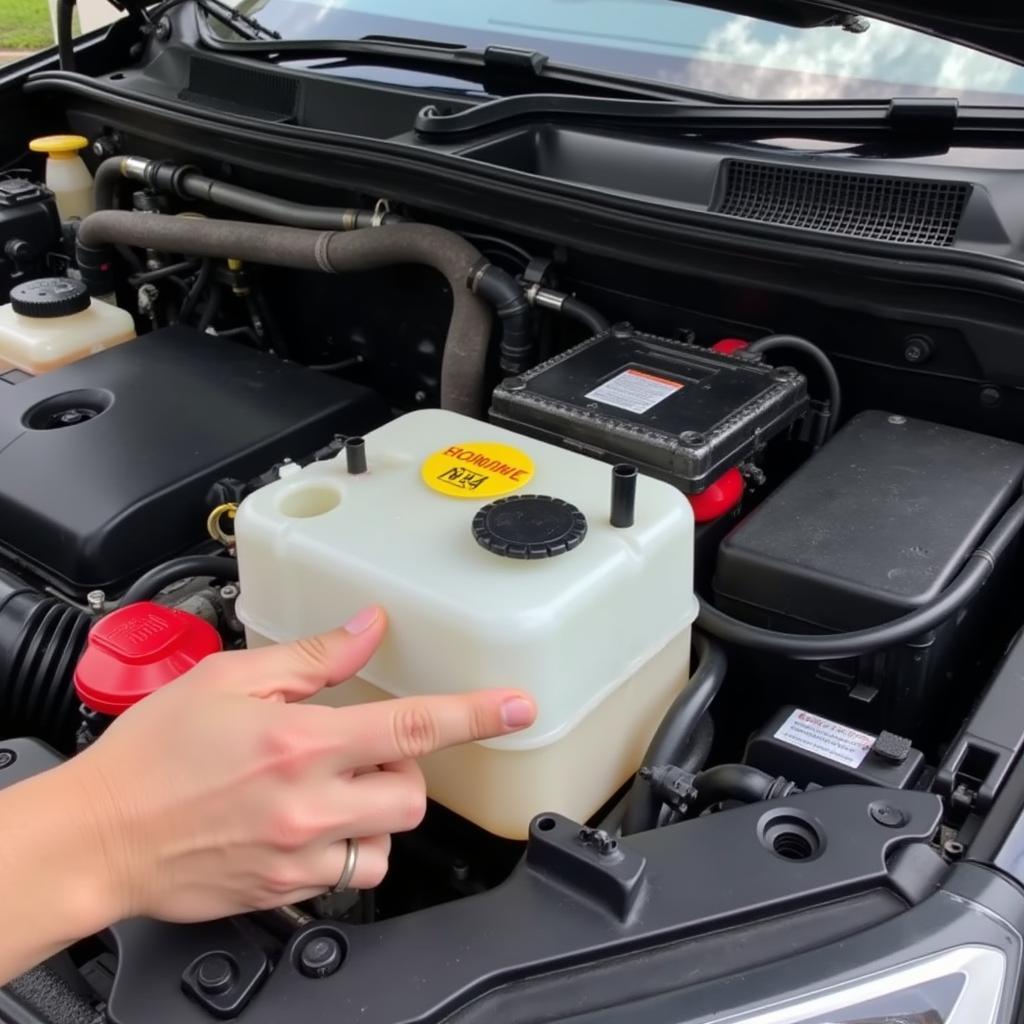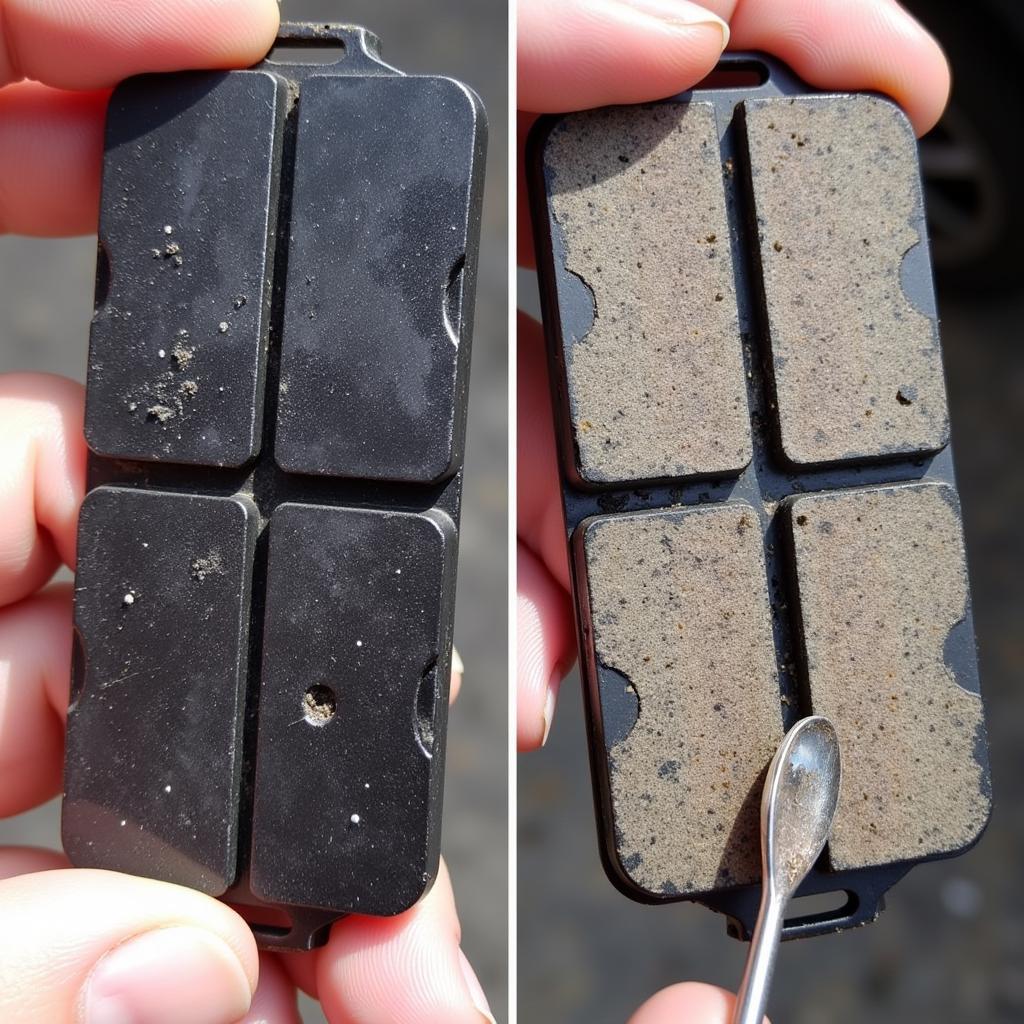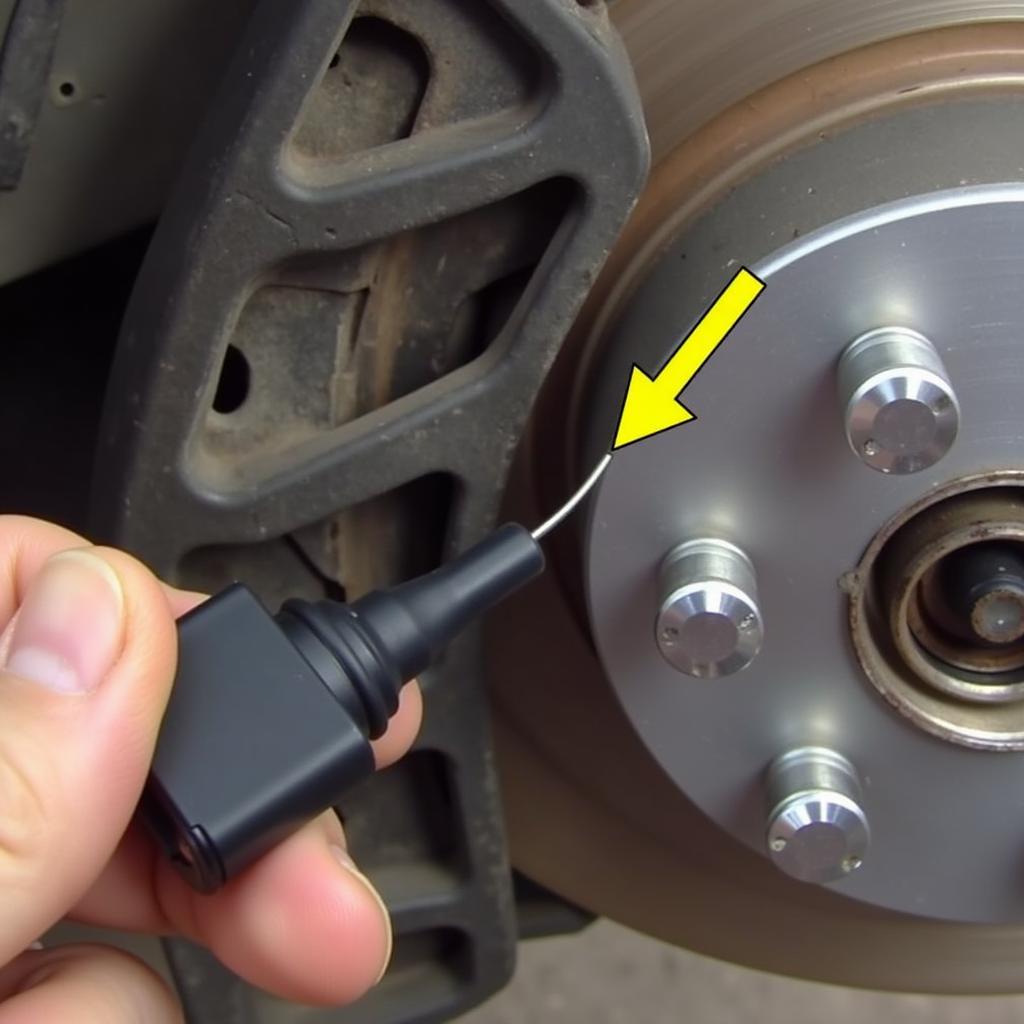A persistent warning brake light can be a frustrating and concerning issue. This article will provide you with a comprehensive guide to diagnosing and fixing the problem, whether it’s a simple fix or requires professional attention. We’ll explore common causes, offer troubleshooting steps, and suggest solutions, empowering you to address this issue effectively. For owners of BMW 3 series vehicles, you might find this article on brake warning lights specifically for your car helpful: car bmw 3 brake warning light.
Understanding Your Brake Warning Light
The brake warning light is a crucial safety feature designed to alert you to potential problems within your braking system. Ignoring it could lead to serious safety risks. This light can illuminate for various reasons, not all of which indicate immediate danger. Understanding these reasons is the first step in resolving the issue.
Common Causes of a Persistent Brake Warning Light
Several factors can trigger a constantly illuminated brake warning light. These range from simple issues like low brake fluid to more complex problems like faulty sensors or ABS module malfunction. Let’s explore some of the most frequent culprits.
Low Brake Fluid
One of the most common reasons for the warning light is low brake fluid. This can be due to worn brake pads or a leak in the system.
Faulty Brake Sensor
Your car’s braking system is equipped with sensors that monitor various components. A malfunctioning sensor can trigger the warning light even if there’s no actual problem with the brakes.
Worn Brake Pads
Worn brake pads can also trigger the warning light. As the pads wear down, the brake fluid level drops, activating the sensor.
Issues with the ABS System
The Anti-lock Braking System (ABS) plays a vital role in preventing wheel lockup during braking. Problems with the ABS module, including faulty sensors or wiring issues, can cause the brake warning light to stay on. If you own a 2014 3 series BMW, you may find this resource helpful: 2014 3 series brake warning light.
Troubleshooting a Persistent Brake Warning Light
Before heading to a mechanic, you can try a few troubleshooting steps to pinpoint the problem.
- Check Brake Fluid Level: Open the hood and locate the brake fluid reservoir. Check if the fluid level is below the minimum mark. If it is, add brake fluid of the correct type. However, if the fluid level drops again quickly, it indicates a leak that needs immediate professional attention.
- Inspect Brake Pads: Visually inspect your brake pads for wear. If they appear thin or worn, they likely need replacement.
- Check Warning Lights Related to ABS: If the ABS warning light is also illuminated, it suggests a potential issue with the ABS system, requiring further diagnosis. You might find resources like bmw brake warning light 3 series helpful.
 Checking the brake fluid reservoir in a car
Checking the brake fluid reservoir in a car
Solutions for a Persistent Warning Brake Light
Depending on the diagnosed problem, the solution can range from a simple top-up of brake fluid to more complex repairs.
Adding Brake Fluid
If low brake fluid is the cause, simply adding the correct type of brake fluid should resolve the issue. However, as mentioned earlier, consistent low fluid levels indicate a leak.
Replacing Brake Pads
Worn brake pads necessitate replacement. This is a relatively straightforward procedure, but if you’re not comfortable doing it yourself, it’s best to consult a mechanic. For BMW 3 series owners, here’s a helpful link: bmw 3 series brake warning light reset.
Repairing or Replacing ABS Components
Problems within the ABS system, such as a faulty sensor or module, may require professional repair or replacement. This can be a more complex and potentially costly fix.
 Comparison between new and worn brake pads
Comparison between new and worn brake pads
Remote Diagnostics and Software Solutions
Modern vehicles often rely on software and electronic control units (ECUs) to manage various systems, including braking. Sometimes, a software glitch or corruption can trigger the warning brake light. In such cases, remote diagnostics and software updates or resets can effectively resolve the issue without physical intervention. For BMW 3 series owners concerned about their brake fluid warning light, this resource may be useful: brake fluid warning light bmw 3 series.
“Remote diagnostics and programming are invaluable tools in today’s automotive landscape,” says automotive diagnostics expert, David Miller. “They allow us to quickly pinpoint and resolve software-related issues, often saving time and money for the vehicle owner.”
Conclusion
A persistent warning brake light demands attention. By understanding the potential causes and employing the troubleshooting steps outlined in this article, you can take the first steps towards resolving the issue. Remember, a properly functioning braking system is paramount for your safety and the safety of others on the road. Don’t hesitate to seek professional help if you’re unsure about any aspect of the diagnosis or repair.
“Addressing brake warning lights promptly is crucial,” adds Sarah Chen, a certified automotive technician. “Ignoring them can lead to more significant problems down the line.”
FAQ
-
Is it safe to drive with the brake warning light on? It depends on the cause. While it might be a minor issue like low brake fluid, it could also indicate a serious problem. It’s best to avoid driving and get it checked immediately.
-
How much does it cost to fix a brake warning light issue? The cost varies depending on the cause. A simple brake fluid top-up is inexpensive, while replacing ABS components can be more costly.
-
Can I fix the brake warning light myself? Simple tasks like adding brake fluid can be done DIY. However, more complex repairs require professional expertise.
-
How often should I check my brake fluid level? Checking it monthly is recommended as part of routine vehicle maintenance.
-
What type of brake fluid should I use? Refer to your vehicle’s owner’s manual for the correct type of brake fluid. Using the wrong type can damage the braking system.
-
Can a faulty parking brake trigger the brake warning light? Yes, in some vehicles, a malfunctioning parking brake system can activate the brake warning light.
-
What should I do if the brake warning light flashes on and off intermittently? This could indicate a loose connection or a failing sensor. It’s essential to have it diagnosed promptly.


